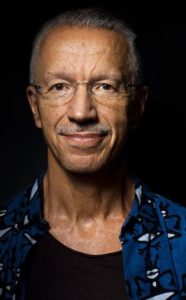
Keith Jarrett
*Keith Jarrett was born on this date in 1945. He is a white-American jazz and classical music pianist and composer.
Keith Jarrett was born in Allentown, Pennsylvania, to a mother of Slovenian-Hungarian descent from Prekmurje, Slovenia, and a father of French or Scots-Irish descent. He grew up in suburban Allentown and had significant early exposure to music. Jarrett possesses absolute pitch and displayed prodigious musical talents as a young child.
He began piano lessons before his third birthday, and at age five, he appeared on a TV talent program hosted by the swing bandleader Paul Whiteman. He gave his first formal piano recital at seven, playing works by composers such as Mozart, Bach, Beethoven, and Saint-Saëns and ending with two of his compositions.
Encouraged by his mother, he took classical piano lessons with a series of teachers, including Eleanor Sokoloff of the Curtis Institute. In his teens, as a student at Emmaus High School in Emmaus, Pennsylvania, Jarrett learned jazz and became proficient in it. He developed a strong interest in contemporary jazz; a Dave Brubeck performance was an early inspiration. He had the offer to study classical composition in Paris with Nadia Boulanger, but Jarrett, already leaning toward jazz, decided to turn the offer down.
After he graduated from Emmaus High School in 1963, Jarrett moved to Boston, where he attended the Berklee College of Music and played cocktail piano in local clubs. After a year, he moved to New York City, where he played at the Village Vanguard. Art Blakey hired Jarrett to play with the Jazz Messengers. During a show, he was noticed by Jack DeJohnette, who recognized the unknown pianist's talent and unstoppable flow of ideas. DeJohnette talked to Jarrett and recommended him to his bandleader, Charles Lloyd.
The Charles Lloyd Quartet had formed not long before and had been exploring open, improvised forms while building supple grooves. They were moving into terrain that was also being explored, although from another stylistic background, by some of the psychedelic rock bands of the West Coast. Their 1966 album Forest Flower was one of the most successful jazz recordings of the mid-1960s, and when they were invited to play The Fillmore in San Francisco, they won over the local hippie audience. The Quartet's tours across America, Europe, and Moscow made Jarrett a popular rock and jazz musician. The tour also laid the foundation for a lasting musical bond with DeJohnette.
Jarrett began to record his tracks as a leader of small groups. Life Between the Exit Signs (1967), his first album as a leader, was followed by Restoration Ruin (1968). Somewhere Before, another trio album, followed in 1968 for Atlantic Records. His album The Köln Concert (1975) became the best-selling piano recording in history. Since the early 1970s, he has enjoyed tremendous success as a group leader and a solo performer in jazz, jazz fusion, and classical music. His improvisations draw from the traditions of jazz and other genres, especially Western classical music, gospel, blues, and ethnic folk music.
In 2003, Jarrett received the Polar Music Prize, the first recipient of contemporary and classical musician prizes; in 2004, he received the Léonie Sonning Music Prize. In 2008, he was inducted into the Down Beat Jazz Hall of Fame in the magazine's 73rd Annual Readers' Poll.
In February and May of 2018, a stroke left him temporarily paralyzed. “My left side is still partially paralyzed. I’m able to try to walk with a cane, but it took a long time for that – took a year or more,” he said. Jarrett spent nearly two years in a nursing facility.
He added: “When I hear two-handed piano music, it’s very frustrating, in a physical way. If I even hear Schubert or something played softly, that’s enough for me. Because I know that I couldn’t do that. And I’m not expected to recover that. The most I’m expected to recover in my left hand is possibly the ability to hold a cup in it.”